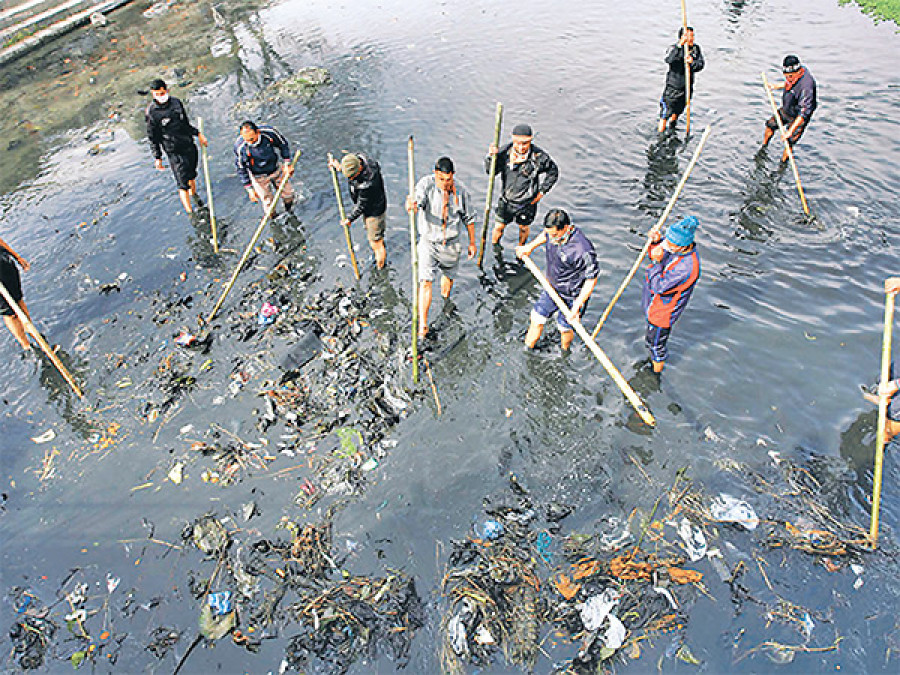Editorial
Wasting waste
A near non-existent waste management system has turned our rivers into dark veins of dirt.
Close to eight years now, thousands of volunteers have donated their time and effort to clean the Bagmati River in the Kathmandu Valley. Tonnes and tonnes of waste have been collected from the river and riverbanks as part of the weekly cleaning campaign, which recently marked its 400th week; but there is little information as to whether the trash is recycled or just ends up at the dumping site as does the rest of solid waste produced by Kathmandu.
Taking a cue from the weekly cleaning campaign, volunteers and river activists have initiated similar campaigns across the country; but these laudable efforts, which bring people together and instil values of volunteerism, camaraderie and environmental awareness, need to be complemented by strict implementation of segregating waste at the source, and exploring opportunities to turn waste into wealth. This is not a fancy idea as solid waste management start-ups in the capital have already proved and even garnered international attention for their zero-waste goal. The only drawback here is a parallel state policy and facilitation to stop wasting waste.
At Beni Municipality in Myagdi, where the local body has been dumping waste on the banks of the Kaligandaki River for the last 17 years for lack of a designated dumping site, river pollution has become a serious environmental issue that also threatens several aquatic animals. A private company that was hired two years ago to recycle, reuse and reduce solid waste has also failed to fulfil its responsibility, leaving residents with an unbearable stench produced by piles of garbage which has turned Beni, an important tourism intersection, into an eyesore.
The Beni case reverberates across the country, where, for decades, a near non-existent solid waste management system has turned our rivers into dark veins of dirt. Things have also turned worse as the government considers dumping sites as the only solution to solid waste management. In the case of Kathmandu Valley, officials have started work to build another dumping site because the current landfill site at Sisdol has exceeded its capacity. Yet again, the officials have failed to tackle the problem at the source as our waste footprint grows every year.
The country desperately needs a policy that requires full compliance from all households and businesses to segregate waste at the source and subscribe to solid waste management companies that will work under strictly regulated guidelines. For many a time, individuals, businesses, and even waste management companies resort to burning garbage or dumping it in the river. Environmental and economic interventions can easily solve this trash problem and, in the process, create jobs and turn rubbish into rupees. Studies suggest that a huge chunk of waste produced in the country is largely biodegradable and could easily be composted if segregated at the source. The Solid Waste Management Act 2011 also requires local bodies to prescribe separation of solid waste into at least organic and inorganic matters at the source and encourage the public to reduce, reuse and recycle solid waste.
For something beneficial both on environment and economic grounds, the government must work to ensure that waste segregation becomes a daily life practice. Simultaneously, it can link waste management companies to compost manufacturers and alternative energy companies. This is a sustainable approach that will stop the dumping of waste in our rivers or finding another landfill site that brings another set of ecological problems like groundwater contamination and emission of greenhouse gases.




 21.12°C Kathmandu
21.12°C Kathmandu














